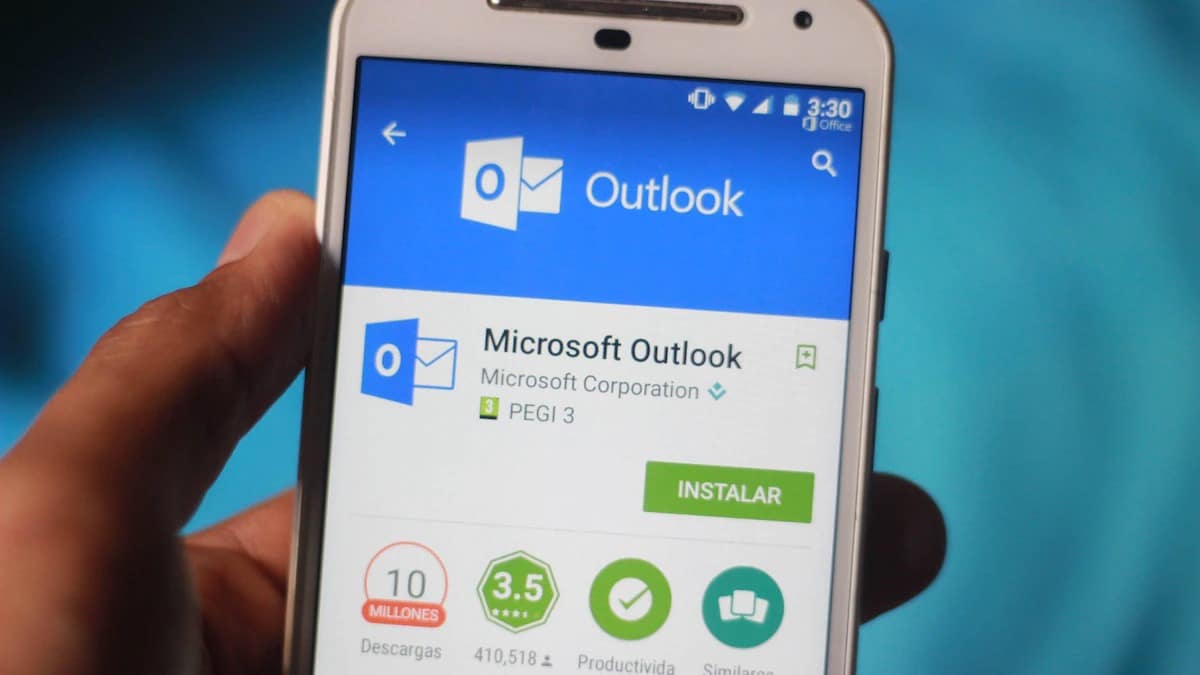The best providers for free email addresses: Outlook
The freemail provider Outlook from Microsoft scores especially with large storage space, which is not least thanks to the free service OneDrive. Originally, the service was called Hotmail.com – you can choose between outlook.com and hotmail.com as your email domain. The service offers many advantages:
- With Outlook, you get 15 GB of free storage plus another 5 GB in the cloud via OneDrive.
- Email attachments can be up to 25 MB in size. If they should be larger, the attachments are swapped out to the OneDrive cloud. This increases the limit to 5 GBytes.
- Practical is also that the Microsoft chat service Skype is directly integrated into the Outlook mailbox. Furthermore, Outlook works perfectly with Office applications like Word and Excel.
- A separate app for use on the smartphone is also available in the App Store. Outlook can be set up in any mail software via POP3 and IMAP.
- In terms of security, Outlook only scores mediocre. Due to the location of the servers outside the EU, the strict data protection guidelines are missing. Furthermore, the mails on the servers are not encrypted.

Email Provider Comparison: Outlook Scores with Free Storage.
T-Online’s free email provider lets you attach larger attachments to your emails than the competition and benefits from server locations in Germany.
- T-Online has 1 GB of free storage. The free cloud offers another 10 GBytes.
- Email attachments can be up to 32 MBytes in size. Again, larger attachments can be offloaded to the cloud.
- An app on the smartphone is available so you can check email on the go. Using POP3 and IMAP, you can set up your email in any mail program.
- Telekom can also score in terms of security. The servers are located in Germany, which guarantees strict data protection laws.

Free e-mail providers are a dime a dozen.
Email Provider: Gmail
Search engine giant Google’s Gmail is one of the most popular freemail providers around.
- The service offers the largest storage space in comparison with 15 GB. This is distributed among Google Drive, Gmail and Google Photos.
- You can send e-mail attachments with a size of up to 25 MBytes. If this value is exceeded, files can be uploaded to the cloud and then shared via link.
- Gmail naturally also offers an app for the smartphone and the computer. The software impresses with a clear design that can also be personalized.
- You can also retrieve your messages from Gmail in other email programs via POP3 and IMAP.
- In terms of security, the e-mail provider cannot keep up with services like Telekom. For example, it is not clear how Google processes user data and the service’s servers are located outside the EU.
Email provider: GMX
Almost every fourth e-mail user in Germany has their account with GMX. This makes the provider one of the most popular e-mail services in the German region. GMX’s freemail offering is not a match for the competition in all respects:
- GMX provides users of its free offering with a mailbox size of 1 GB. Tied into this is cloud storage of up to 2 GBytes.
- With GMX, they can send attachments of a maximum size of 20 MBytes.
- In these areas in particular, other providers like Gmail or T-Online perform better. Those who need more storage space can fall back on the GMX Premium offer. For this, they pay either 2.99 euros or 4.99 euros per month, depending on the amount.
- In addition, GMX supplies an easy-to-use and well-structured app for Android and iOS devices.
- In terms of security, GMX offers its customers secure end-to-end encryption using the Pretty Good Privacy (PGP) encryption concept. With the GMX Tresor, cloud storage can also be encrypted.
- An advantage: As with Web.de and Telekom-Online, the company stores all data in German data centers.
Email provider: Web.de
Web.de is another German e-mail provider besides GMX and T-Online. Thus, your data is also stored here in Germany. As a result, they are bound by the strict German data protection laws – which benefits you as a user. However, Web.de’s free service is not quite up there in other respects.
- The free service from Web.de provides a mailbox of 1 GByte for its users. In addition, there is a cloud storage of 2 GBytes in the free version.
- With Web.de, you can attach data of a maximum of 20 MBytes to emails.
- For those who need a larger capacity, Web.de offers the possibility to join the so-called “Web.de Club”. For 5 euros a month, you have unlimited storage capacity and the ability to send attachments of up to 100 MBytes.
- Web.de also offers a suitable client for using the service as an app on Android or iOS devices.
- Just like Web.de, GMX also protects your emails with secure end-to-end encryption. You can encrypt the cloud storage, just like with GMX, with the Web.de vault.
Important: Security risks with free e-mail providers
You should know the following about the email providers listed above:
- The non-German providers are proprietary services of large international corporations, such as Google and Microsoft. In most cases, the data is stored on servers in the USA.
- The providers of Web.de, GMX and T-Online, on the other hand, store their e-mail data in German data centers.
- At the latest since global surveillance by the secret services became public, it is questionable how secure such services are in terms of privacy and data protection.
- In addition, almost all free e-mail providers earn money with personalized advertising: for this purpose, information from your private mails is evaluated in order to advertise products that are suitable for you.
- This is why you have to pay money in almost every case if you want to use a secure email provider that respects your private data. This is also confirmed by the current email provider security test by Stiftung Warentest, which recommends Posteo and Mailbox.org in particular, but not the free services.
- We present three recommendable, secure e-mail providers for more privacy: As a rule, you only pay 1 euro per month here – a fair price for the service.
